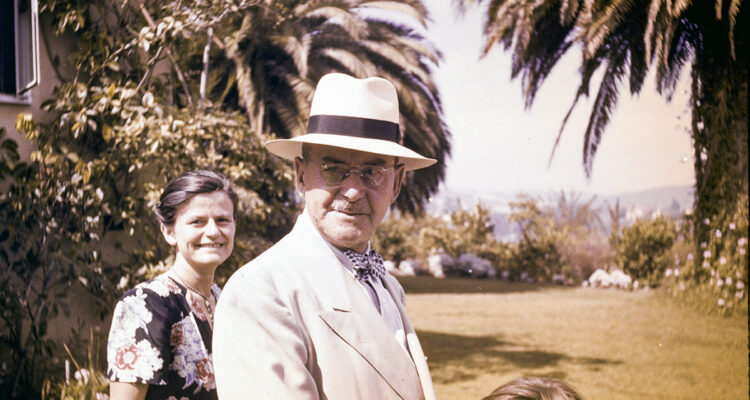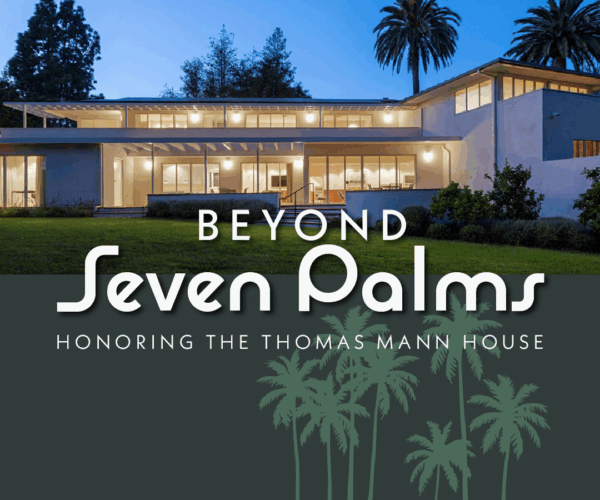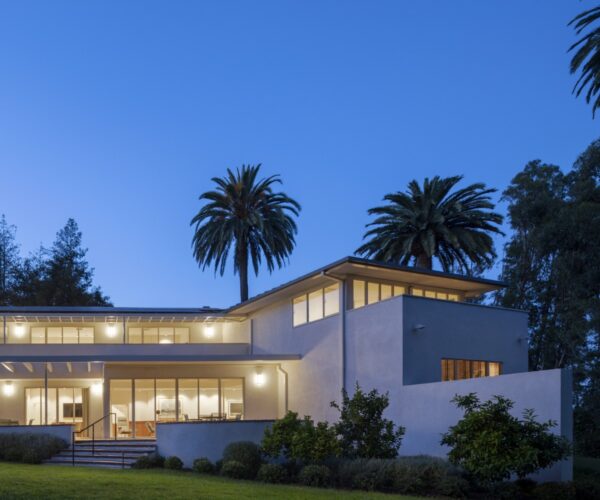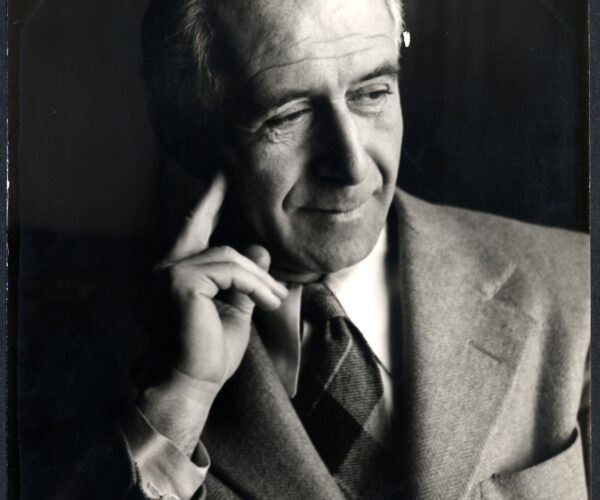
Thomas Mann
Celebrated and respected writer and social critic, Mann emigrated to Los Angeles as a political exile during WWII, settling in the Pacific Palisades among a group of other German expats.
Thomas Mann (1875–1955) was a Nobel Prize-winning German author, political exile, and one of the defining voices of 20th-century literature. Born in Germany, Mann achieved worldwide notoriety from his works such as Buddenbrooks, Death in Venice, and The Magic Mountain, and won the Nobel Prize for Literature in 1929. In 1933, Mann’s political writings were blacklisted by the Nazi regime and after expressing solidarity with other banned writers, the regime stripped him of his citizenship. He and his family left Germany in exile, emigrating to the United States in 1939. A sizable group of German intellectual exiles moved to Los Angeles, specifically in and around the Pacific Palisades.
The Mann family commissioned German-born, modern architect J.R. Davidson to build their home in the Palisades. The exterior of the home would evoke a California Modern style, while the interior design was largely German-inspired. The Mann family would live in this home from 1942-1952.
One of the few who publicly opposed Hitler and the Nazi regime, Mann recorded anti-Nazi speeches from the United States, addressing the German people via the BBC. Monthly broadcasts were recorded in the U.S., flown to London, and broadcast to Germany, occupied Netherlands, and Czechoslovakia during the war via longwave radio band. From 1940 until 1945, “Thomas Mann pleaded to thousands of listeners to resist the Nazi regime and thus became the most important German voice in exile.” Thomas Mann returned to Europe in 1952, frustrated and targeted by anti-communist McCarthyism in the United States, and settled in Switzerland, where he died in 1955.


